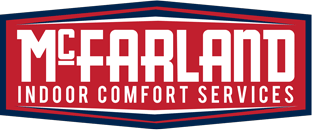Common Reasons Why Your Furnace is Making Noise
Is your furnace suddenly making noises that have you concerned? Normal furnace operation features clicking or tapping sounds as it ignites and turns off. However, when your unit makes strange noises during the entire operation, it indicates an underlying problem. So, why is your furnace noisy? 1. Banging Sounds A banging sound is commonly a sign of an ignition problem. When the thermostat signals the furnace to start a new cycle, the gas valve opens up. The ignition system should ignite the gas immediately. Sometimes, this process fails due to a faulty ignition system. Some gas leaks into the combustion chamber. When the fuel is finally ignited, the gas in the chamber burns suddenly, creating a banging sound. Be sure to contact a furnace repair professional before this gets any worse. 2. Screeching or Squealing A loose blower fan can drag its blades against the furnace causing screeching or squealing sounds when the furnace operates. A worn-out or slipping blower belt also makes high-pitched noises during operation. 3. Whistling Sounds Whistling sounds are a result of the furnace forcing air through blocked components. This may apply to air filters, ductwork, or vents. When cleaning the internal components does not solve...
View Article